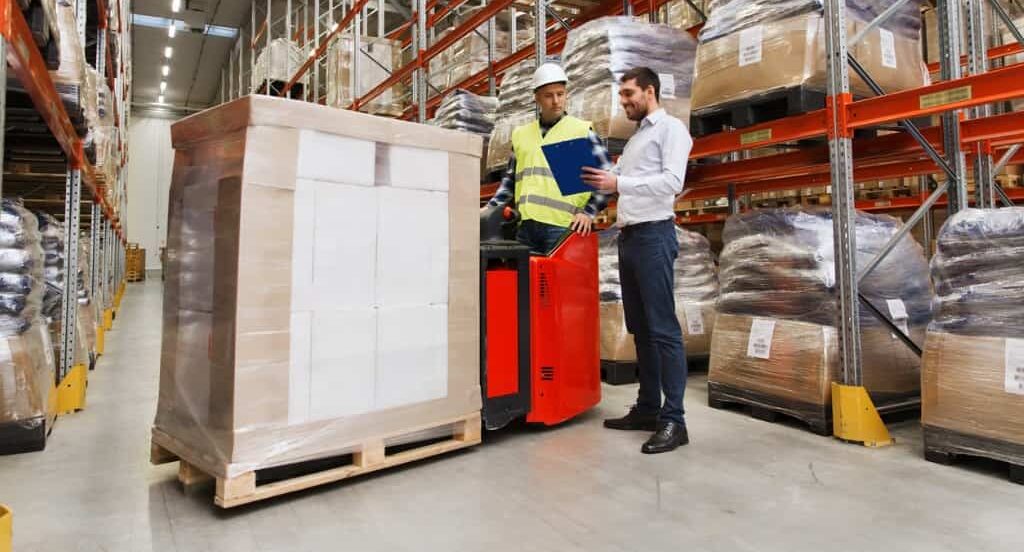One of the most important aspects of starting importing or exporting operations is ensuring legal compliance every step of the way. From having the right customs paperwork completed correctly, following relevant FDA, USDA or EPA requirements, and paying the appropriate tariffs and duties – all the way through recordkeeping – the complexity practically demands specialty training and expertise.
Customs brokerages can make it much simpler, as covered in the article The smart approach to cross-border trade. But not all of them are created equal. Asking the right questions makes it easier to separate a good customs brokerage from the mediocre.
What can a good customs brokerage do for clients?
Every customs broker must pass a licensing exam, but that doesn’t mean each has the same level of expertise. A license just proves that a baseline set of requirements has been met. Businesses seeking long term success in cross-border trade should look for providers that can help them mature to the next level.
A good broker will have the knowledge to guide clients through their first steps and dedicate enough bandwidth to support day-to-day operations responsively. It should also offer forward-looking, strategic insights that enable the business to grow.
What are the benefits of working with an established brokerage?
Businesses on a tight budget with straightforward needs may feel tempted to choose a customs brokerage on price alone. This can be a mistake in the long run. Benefits offered by established customs brokerages include:
- Depth of expertise, gained over years of handling unique situations
- Proven ability to keep pace with the times, which is key to keeping clients’ cross-border operations optimized and compliant
- Industry relationships to help quickly solve issues when needed
- Peace of mind, because long term success comes from having long term clients, earning referrals and building a positive reputation
5 questions to help identify a good customs brokerage
Asking the following questions can help businesses narrow down their pool of options by separating the good from the so-so. Even questions that don’t seem immediately relevant may be worth asking. It’s important to also keep future needs in mind during the vetting process.
1) Which transportation modes does the brokerage support?
Customs processes may vary slightly depending on the shipping mode. It’s important for a brokerage to have experience supporting clearance for goods transported by air, ground, ocean and rail.
The expense of air cargo, for instance, may make it impractical for regular shipments. Still, OEMs facing a line shutdown are more likely to put desperately needed spare parts on a plane than a ship.
This means completing different forms, complying with the Air Cargo Advance Screening program, facing new dimensional limitations, etc., etc. In this example, there’s no room for error. There’s also no time to look for a different broker if the first one doesn’t support air cargo clearance.
2) Which geographies has the brokerage served?
Similar to the point about modes supported, circumstances can be hard to predict. New tariffs can easily force businesses that have imported raw materials from China for 20 years to source from a different country, or even continent.
A good brokerage should have the experience and confidence to adjust to evolving market conditions, consumer demands and management preferences without inconveniencing clients.
3) What kind of emergency support does the customs brokerage offer?
The level of support that a customs brokerage offers clients when unexpected issues arise is another important consideration. It’s great to have a broker accessible anytime during business hours on weekdays. Goods are constantly in transport, though, and in international trade it’s always the middle of a workday somewhere.
Leading brokerages recognize that emergencies can happen at random times, and are on call to assist with urgent situations on any day, and at any hour.
4) Which industries has the brokerage served?
Working with a customs brokerage that’s used to working within a specific industry offers a level of comfort to businesses with no prior cross-border experience. This is especially true when it comes to compliance concerns. The brokerage is familiar with the right tariff codes and knows relevant regulations in regions where trade partners operate. It also probably has contacts to help resolve issues that pop up.
Many types of goods have handling needs above and beyond the norm. They can require additional permits and certifications, or result in stringent inspections. In these instances, industry experience is more of a “must-have“ than a “nice-to-have.”
5) What other services does the customs brokerage offer?
Again, it’s important to think about future needs likely to come up as business expands. There may also be some overlooked immediate needs. Recordkeeping solutions, warehouse space and insurance policies are good examples of items that don’t always come immediately to mind. Asking this question can result in extra insights for internal planning efforts.
Selecting a good customs brokerage doesn’t have to be hard
Even businesses with no experience in cross-border operations can separate potential long term strategic partners from run-of-the-mill order-takers. They just need to ask a handful of questions. With many offering no-risk quotes based on prospective clients’ particular needs, there’s no reason to not reach out and get the ball rolling.
If you have a customs broker already and are anxious about making a switch, read How to break up with a customs broker for guidance.
FAQ
An organization that offers the services of customs brokers who are trained and licensed to handle the documentation, transport and clearance of goods on behalf of clients.
Customs requirements can vary based on several factors, such as type of goods, transport mode and country of origin. As a result, clearance isn’t always straightforward. Customs brokers help prevent delays in compliance with applicable guidelines.
It depends on many considerations, including specific needs and budget. Businesses can use the questions above to help find customs brokerages that can best fulfill their requirements.


